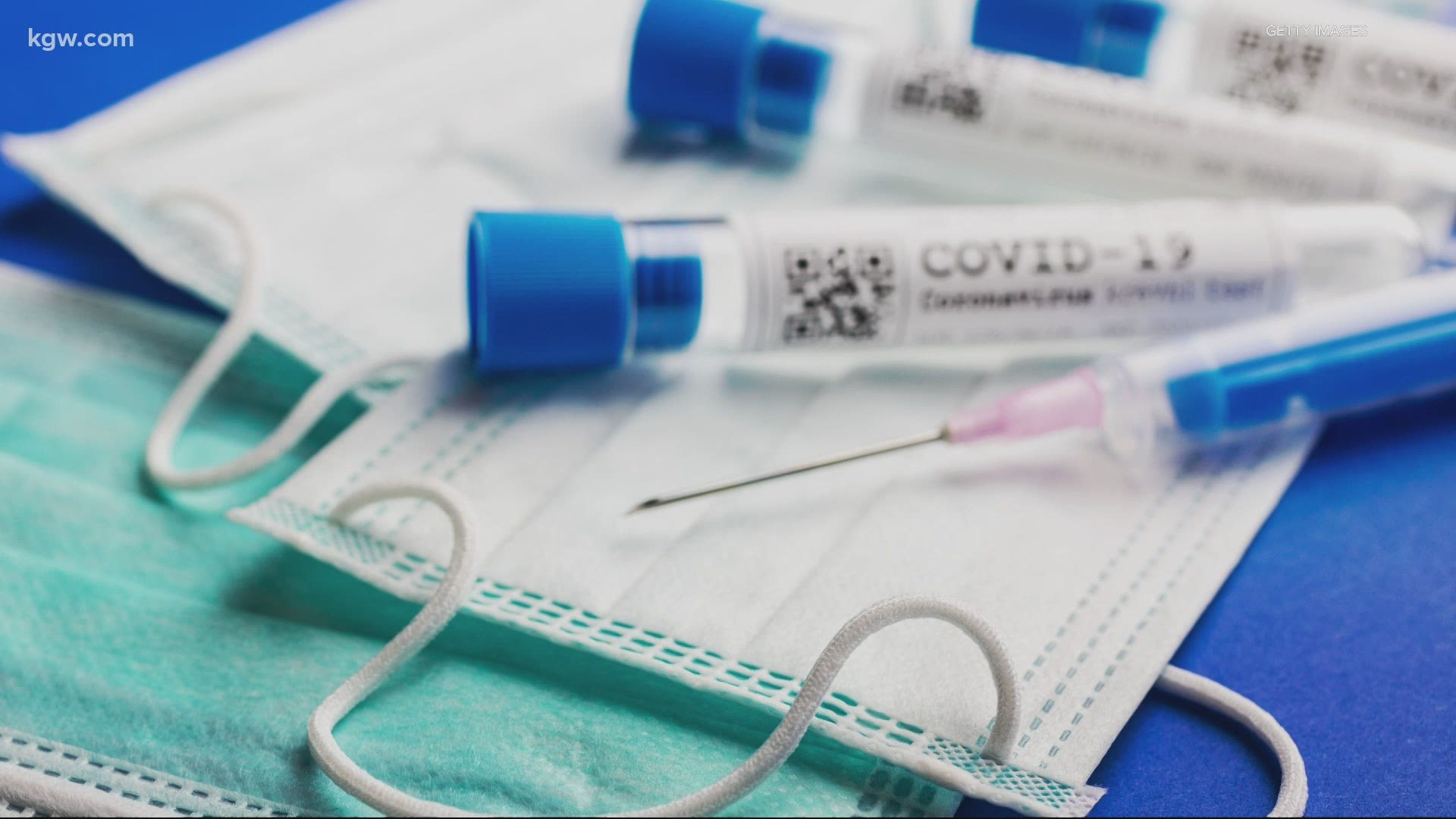PORTLAND, Ore. — The FDA will consider emergency use authorization of COVID-19 vaccines next month from several companies.
Dr. Gaurav Sahay is an associate professor at Oregon State University's School of Pharmacy. He's optimistic about a coronavirus vaccine.
"The beginning of the end of the pandemic," Sahay put it.
Pharmaceutical companies Pfizer and Moderna both report having vaccines that could be about 95% effective against the virus.
"Those are very high efficacies," Dr. Jan Medlock said.
Medlock is also an associate professor at OSU, within the department of biomedical science. His research from 2009 about flu and H1N1 is getting new attention during COVID-19.
Some of Medlock's findings highlighted vaccine distribution and priority for different groups.
He noted during the early days of H1N1, vaccines were less effective and difficult to access. Vulnerable communities received priority to help reduce their risk of severe illness.
However, Medlock said the dynamics during COVID-19 could be different with more widespread infection compared to H1N1 and a larger projected supply of vaccines.
"When you get more vaccine, we saw it was better to actually vaccinate the people who do all the transmitting," Medlock said.
With potential COVID-19 vaccines being more effective, Medlock explained younger people who are now spreading the virus at higher rates will need the vaccine, too.
"Indirectly protect the people who are more at risk of severe disease and death," Medlock said.
Medlock said medical workers and first responders also need priority.
Both Pfizer and Moderna's vaccines use messenger RNA technology (MRNA). Instead of containing real particles of the COVID-19 virus, MRNA vaccines contain proteins that act as codes.
"The virus ... think of it as an intruder who has a key in hand that can unlock a gate and make copies of itself," Sahay explained. "This technology is telling the immune system, this is how that key looks like of this intruder, so if you see someone with this key, act."
The synthetic code is supposed to trigger an immune response to the real virus.
MRNA vaccines have been under development since the 1990s, but have never received FDA approval.
"This timeline is, I think, unprecedented," Sahay said. "Vaccines and vaccine development generally takes 20 to 30 years."
However, Sahay emphasized risks taken early during development will likely not be passed on to people who get an approved vaccine.
"Safety has not been compromised," he explained. "Yes, long-term effects and things like that always takes a couple of years to follow up with those patients, but it's not as if a step was missed ... I will definitely be getting one."
Vaccine side effects and availability are still not clear yet.
In the big picture, Sahay and other researchers said development of an MRNA vaccine for COVID-19 could open doors to treating and preventing other diseases down the line.
"As much as it is a hard time right now, I think science has come through," Sahay added. "And things will get better."

